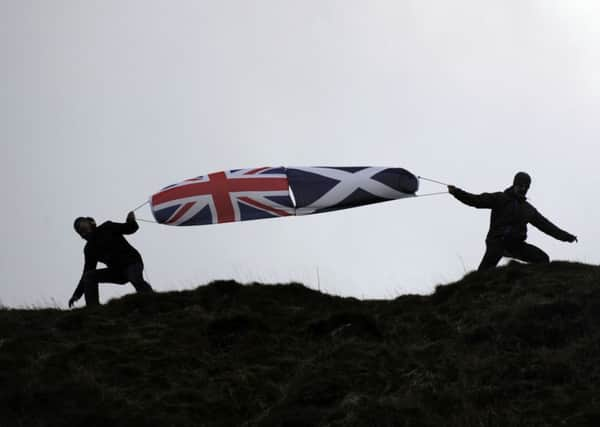David Frost: Scotland famous for robust debate


Recently, though, there has been much discussion about the tone of the debate and about who is able to intervene in it. Some have pointed to occasional aggressive language on the twittersphere and have suggested this discourages wider participation. More recently, some have suggested that the business community has been intimidated into silence. In short, are we having a fair and open debate?
Advertisement
Hide AdAdvertisement
Hide AdFor me, it is no surprise that the discussion is intense. Wherever I was posted as a diplomat, the UK and Scotland were famous for knockabout debate, robust language, and strong exchanges of views, in Parliament and in political debate more broadly.
I have found this personally in the meetings and conversations I have had in recent months. I have had vigorous discussions with all sides of the debate, whether it’s the UK Government, the Scottish Government, or political organisations. All sides have forcefully made their case to us about how this debate impacts Scotch Whisky, but those conversations have always been constructive. Admittedly, sometimes they have been “frank and constructive”, as diplomats say, but I have certainly never considered any of them to go beyond the bounds of what is reasonable.
Has the Scotch Whisky Association been pressed into silence in public? Absolutely not, and no-one has suggested to me that we should be. Despite the strong feelings on either side of the debate, we have felt able to participate in what we regard as a constructive manner. All sides have made it clear that our engagement in the debate is welcome, whether or not they agree with our analysis of the potential impact of change on the industry.
For our part, we recognise that what happens on 18 September is a decision for the people of Scotland as a whole. So when business intervenes in the debate, it’s right that we do so to provide a business perspective. And we need to make sure that what we say reflects the genuine balance of interests of our industry and of our investors, employees, and broader stakeholders. I think business in Scotland has been thoughtful about that and has acted accordingly.
We in the Scotch Whisky Association certainly reflected in depth and consulted widely before intervening. You can read our full position in my Foreword to our 2013 Annual Review, but in brief we are clear that we see potential risks in independence and we look for reassurance about how an independent Scotland could deliver a business environment for Scotch Whisky as favourable as that which we currently enjoy. We are an international and export-focused industry and we see those risks as being around the loss of global support for those exports, about Scotland’s potential status and likely influence in the EU, and about the currency and the potential fragmentation of the UK domestic market.
We have talked about these points to advocates of independence. While I don’t think there’s usually been a meeting of minds, we have always had a fair hearing. That may be because the industry has also always been clear that, whatever the result, we are committed to working with government in the future to deliver economic growth and prosperity for Scotland and all of us who live here. The Scotch Whisky industry is in a unique position to do that and I know that all of us who work in it are determined that we should.
• David Frost is the chief executive of the Scotch Whisky Association